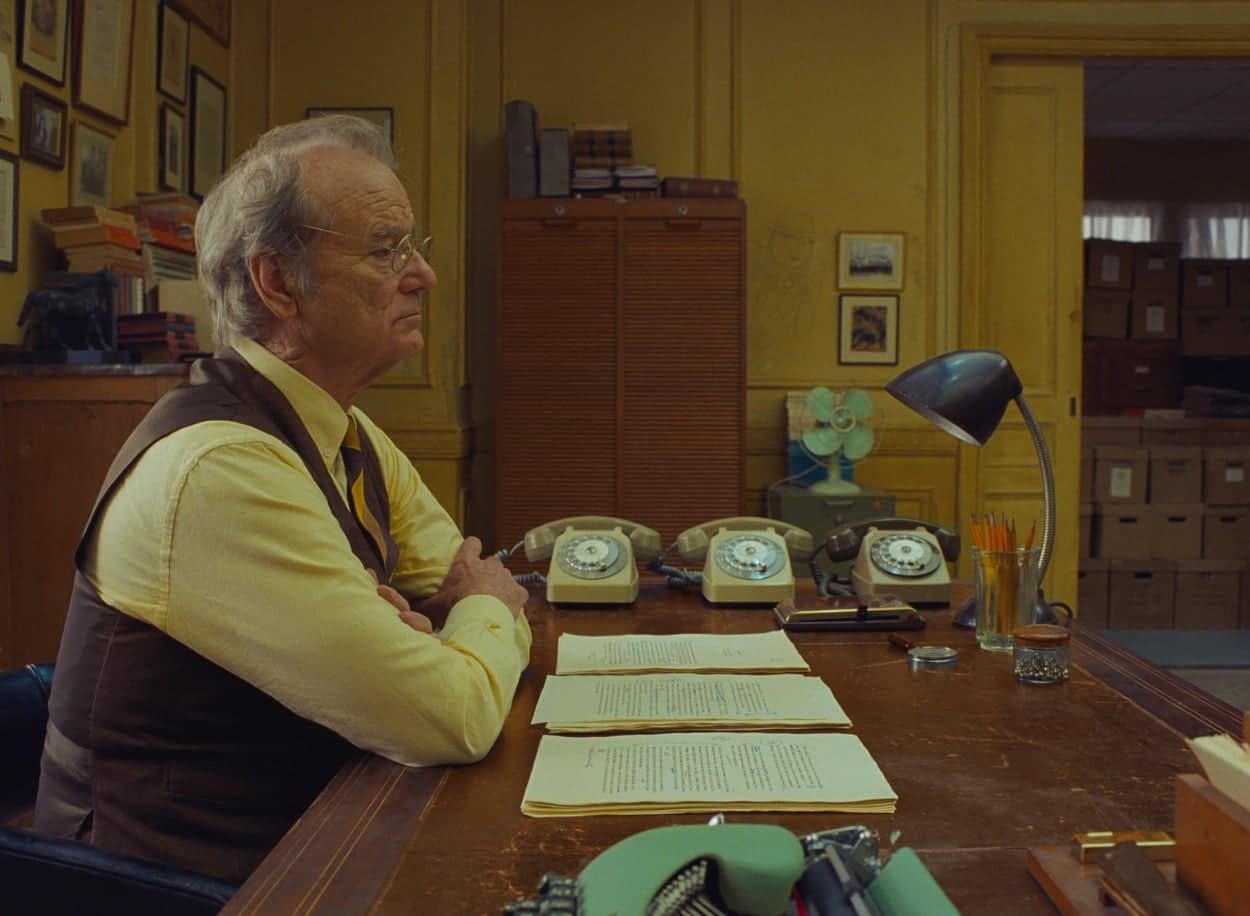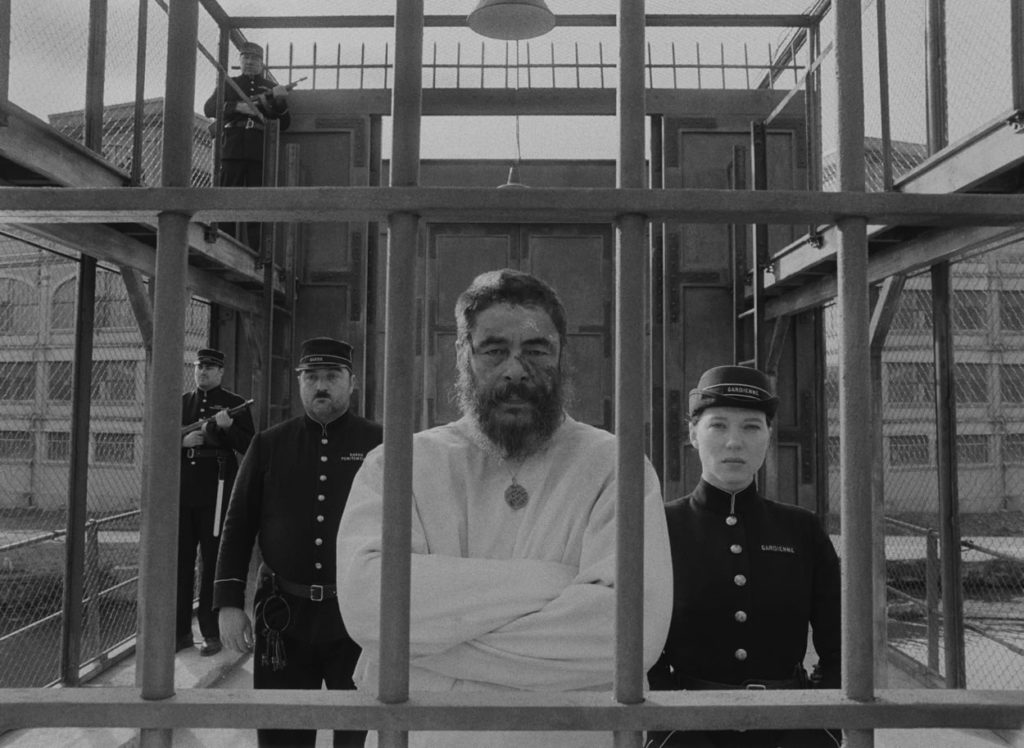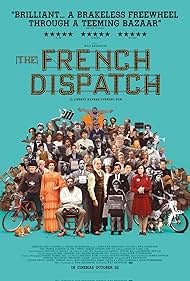A middle finger to the haters, The French Dispatch finds an unrepentant Wes Anderson doubling down on the whimsy and pastiche of films like The Grand Budapest Hotel or The Life Aquatic with Steve Zissou. There’s more. An artist’s statement, done early on in Owen Wilson’s laconic voiceover, vouchsafes that “All grand beauties withhold their deepest secrets.” Secrets? Deepest? Anderson is all surface, surely?
Anyhow, on to the Dispatch, which is an American magazine/supplement of New Yorker stripe run in the old way – a liberal institution headed by a steely eccentric (played by Bill Murray), never short of money and with enough space to contain at least one writer who doesn’t write, enough time on its hands to worry excessively about dangling participles and house style. People have expense accounts. The assignments are exotic. It’s fun. People are dying to work there. This is an indeterminate French city called Ennui-sur-Blasé, but is essentially mid-century Paris by way of Clochemerle, as depicted in Gabriel Chevallier’s sweetly satirical novel of sleepy, petty French France.
And from here, framing device established, Anderson gives us three separate stories, each fronted by a different writer. In the first Tilda Swinton gives us another of her big-teethed, big-haired eccentrics, relating the story of a jailbird (Benicio Del Toro) who becomes a great artist thanks to his muse, who’s also his jailer (Léa Seydoux), and a conman gallerist (Adrien Brody, best thing in the whole film). In the second Frances McDormand plays the writer of a piece about how she befriended and bedded a student radical (Timothée Chalamet) in an Andersonian version of 1968 Paris, before he ran off with a woman closer to his own age (Lyna Khoudri). And in the third Liev Schreiber plays a TV host talking a story out of a celebrated journalist (Jeffrey Wright) about how a chef of the molecular gastronomy school (Steve Park) – he’s called Nescaffier, which is the film’s only really good joke – thwarted a kidnapping.
It’s arch, all of it. At this point in Anderson’s career that kind of goes without saying. But the level of pastiche is what’s really remarkable, and the fact that Anderson never, ever stops laying it on. In one micro-scene that’s emblematic of the whole thing, he fast-cuts between various recipients of a radio broadcast, each one of them listening to it on a different mid-century transistor radio straight from kitsch corner. Inside each doll another doll, fractalling away in a pastiche universe stretching off to the limits of time.
Shot in that dead flat, absolutely shadowless way by Robert Yeoman, who’s been with Anderson ever since his debut, 1996’s Bottle Rocket, the effect is Carl Theodor Dreyer meets a mid-century-modern furniture catalogue, every single aspect considered, every item teased and tweezed. Everything just so.
As with the films of Peter Greenaway, there’s an obsession with symmetry and a tendency for the elaborate production design (by Adam Stockhausen) to become the star of the show. The frame outshines the painting it contains. The “movie” stops moving.
If there are “deepest secrets” then it’s Anderson’s abiding love of the mid 20th century. When the US venerated French culture, and Ernest Hemingway might be found drinking with Lee Miller in the Café de Flore. It’s the era of the triumph of democracy, of pop culture, New Journalism, continental philosophy and the European arthouse movie. Boomers might recognise themselves.
The cameos are fun – Henry Winkler, Bob Balaban, Christoph Waltz, Mathieu Amalric, Cécile de France, Saoirse Ronan, Elisabeth Moss, Willem Dafoe, Edward Norton, some on screen for mere seconds.
To reach for another comparison, it’s Jacques Tati without the jokes and if, like me, you’re not a Tati fan, it’s a slog to watch. 45 minutes from the end I was wondering if the dry-humping of the picturesque past was ever going to stop. I was never entirely sure if it was meant to be an entertaining whole, or just a series of brilliantly executed “sketches”? Like a dinner of exquisite individual courses that never really hangs together as a whole, The French Dispatch is easier to admire than to enjoy.
The French Dispatch – Watch it/buy it at Amazon
I am an Amazon affiliate
© Steve Morrissey 2022


